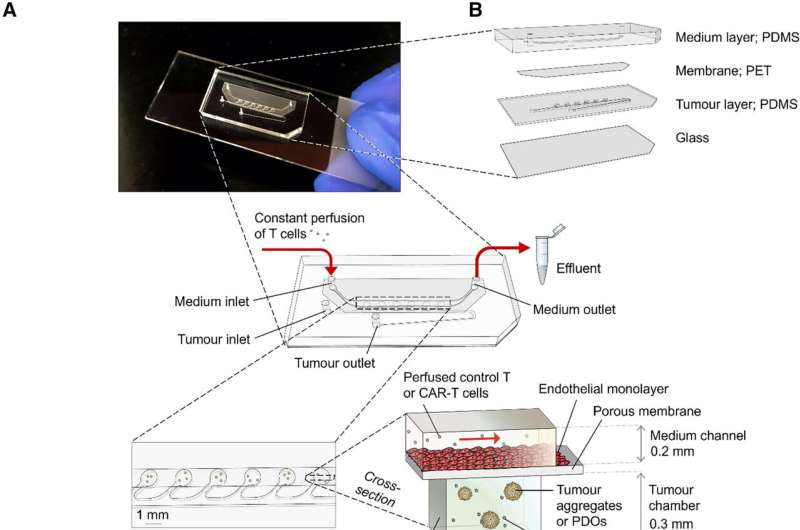Researchers at the NMI Natural and Medical Sciences Institute in Reutlingen and the University Hospitals of Tübingen and Würzburg have now made this very observation possible for the promising CAR-T cell therapy—in real time and on the tissues of patients.
“This allows us to individually investigate how exactly these tumor cells react to the planned therapy, what side effects may be expected and how these can be reduced,” explains Peter Loskill, professor at the University of Tübingen and group leader at the NMI. The researchers have now published their development in the journal Cell Stem Cell.
This observation was made using tumor-on-chip technology: In this case a complex in vitro system of a breast cancer tumor based on human cells, in which tumor tissue was cultivated outside the body. The researchers not only recreated the complex 3D microenvironment of a tumor, but also enabled blood vessel-like perfusion, i.e. the flow of an artificial blood substitute through the chip. The CAR-T cells were also supplied to the tumor cells via this blood substitute and their effect directly observed.

